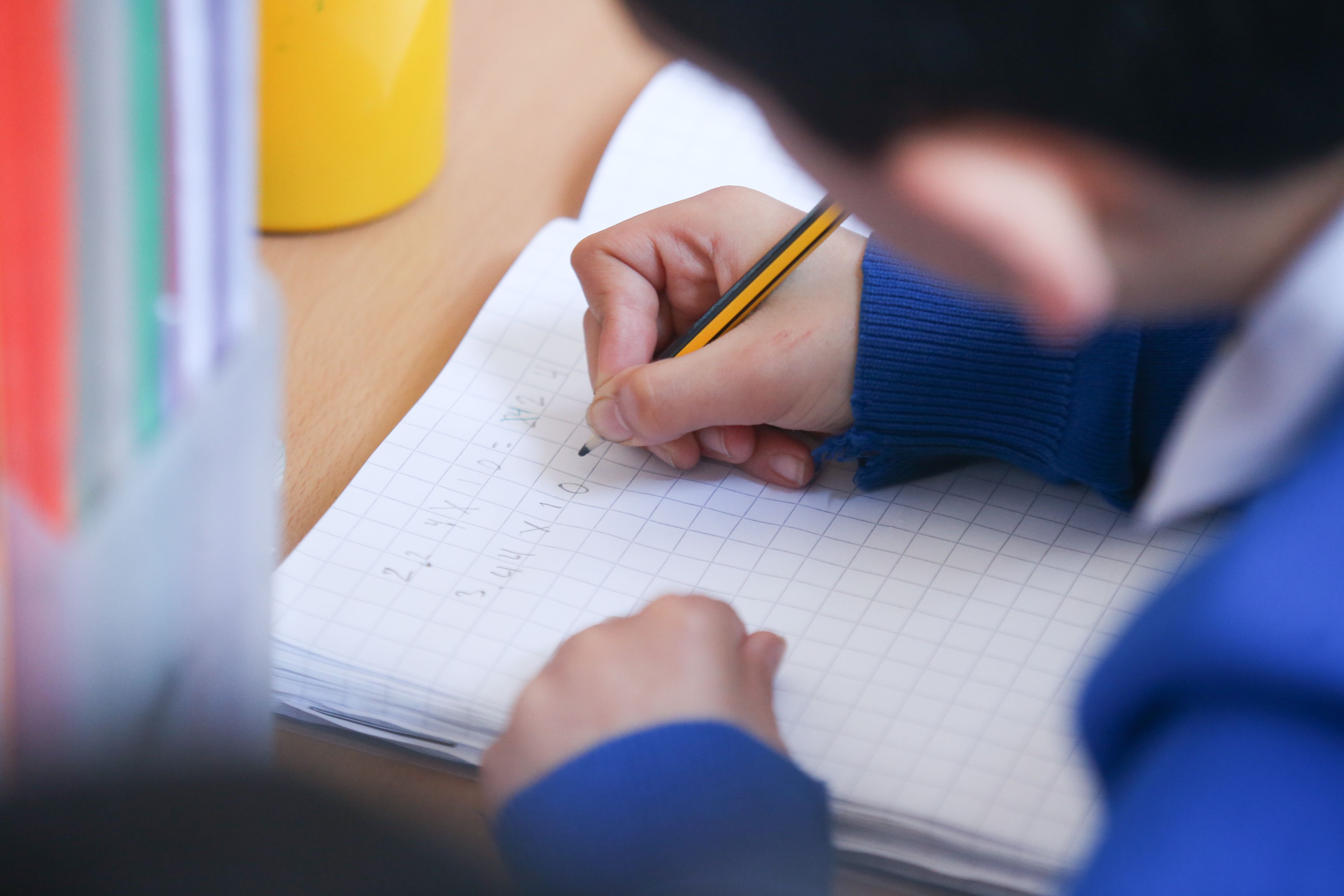Children without English as a first language outperform peers
Students aged eight or nine in England were faced with 25 times tables questions, up to 12 x 12, with a maximum of six seconds to answer each one

Your support helps us to tell the story
From reproductive rights to climate change to Big Tech, The Independent is on the ground when the story is developing. Whether it's investigating the financials of Elon Musk's pro-Trump PAC or producing our latest documentary, 'The A Word', which shines a light on the American women fighting for reproductive rights, we know how important it is to parse out the facts from the messaging.
At such a critical moment in US history, we need reporters on the ground. Your donation allows us to keep sending journalists to speak to both sides of the story.
The Independent is trusted by Americans across the entire political spectrum. And unlike many other quality news outlets, we choose not to lock Americans out of our reporting and analysis with paywalls. We believe quality journalism should be available to everyone, paid for by those who can afford it.
Your support makes all the difference.Children who do not speak English as a first language outperformed their peers in maths skills, the first set of national data on children’s times tables has shown.
The newly-published multiplication table checks of more than 625,000 year four pupils in England also showed disadvantaged pupils had a lower average score than their counterparts.
Of pupils who took the check in summer, the average score for those with a first language of English was 19.4 out of 25, while the average score for pupils with a first language other than English was 21.2.
Students aged eight or nine in England were faced with 25 times tables questions, up to 12 x 12, with a maximum of six seconds to answer each one.
The average score for disadvantaged pupils was 17.9, while the average score for pupils not known to be disadvantaged was 20.5.
For all pupils, the overall average score was 19.8 out of 25.
More than a quarter (27%) of all pupils got full marks.
London was the highest performing region in the country, with an average score of 20.9.
The South West was the lowest performing region, with an average score of 19.1.
It is the first publication of multiplication tables check statistics after the assessment became statutory in the academic year 2021/22.
Funding of up to £59.3 million has been announced by the Department for Education (DfE) as part of the ongoing Maths Hubs Programme which aims to help schools improve their teaching quality.
The department said the money was set aside at the spending review last year and is separate to the £2 billion for schools announced in the autumn statement last week.
Today’s data gives us an important benchmark to build from over the years to come
The times table check results comes as separate research into how the pandemic has affected the attainment gap found disadvantaged seven and eight year-old pupils were eight months behind their peers in maths skills.
The gap has widened since before the pandemic and has remained at a similar level since spring 2021, research by the Education Endowment Foundation (EEF) and National Foundation for Educational Research (NFER) said.
Their research followed 6,000 pupils who were in reception and year one – aged four to six – in March 2020 until the spring term of 2022.
Schools Minister Nick Gibb said: “Learning your times tables fluently is so important for children – both for their time in school and in day-to-day life, and today’s data gives us an important benchmark to build from over the years to come.
“Mathematics is vital for doing essential calculations like how a higher base rate will affect your mortgage or working out the best multi-pack bargains in a supermarket.
“The additional funding for maths hubs announced today is also crucial, as we continue raising the standard of maths teaching across the country and driving towards our target for 90% of children leaving primary school with the expected standard in Mathematics and English by 2030.”
The DfE said the times table check results will provide teachers with standardised information to help identify pupils who might need extra support.


